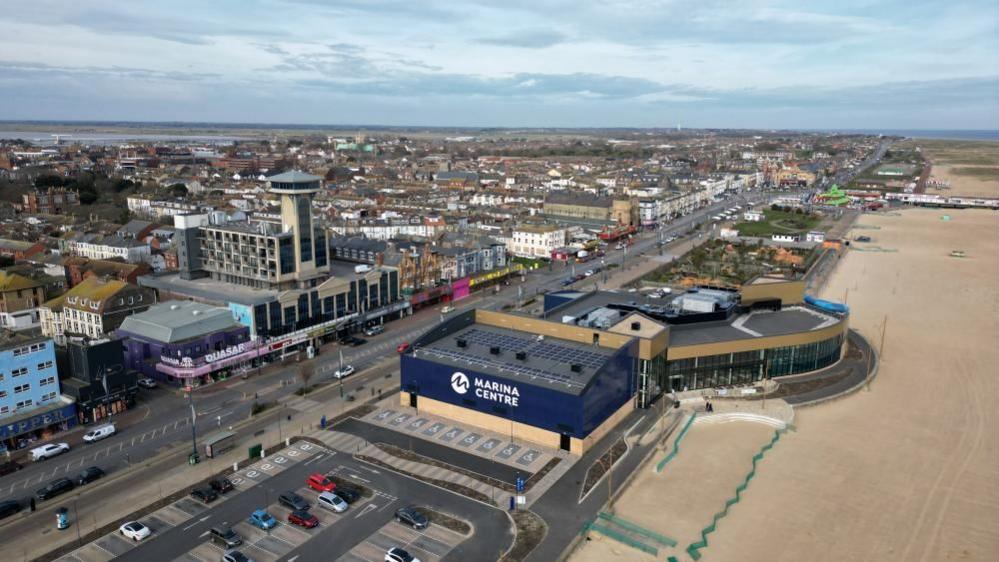Seaside restoration work aims to not upset penguins
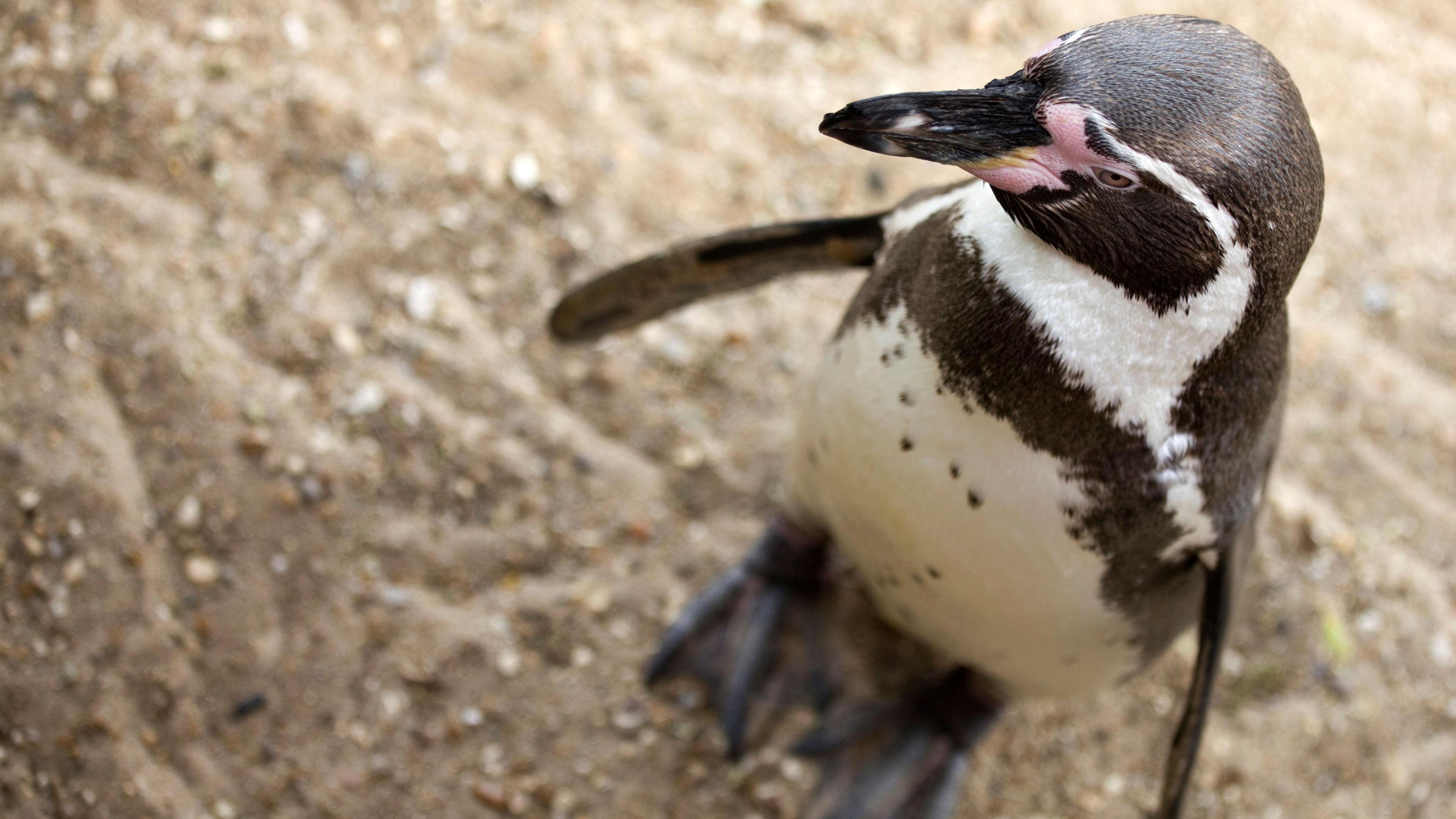
A colony of Humboldt penguins live next door at the Sea Life Centre
- Published
The team restoring a listed seafront landmark say they are having to use "considerate" building techniques to avoid disturbing the Humboldt penguins living next door.
Work has begun on the £18m refurbishment of the Winter Gardens glasshouse in Great Yarmouth, which is next to the Norfolk town's Sea Life centre.
Paul Tumelty, who is overseeing the restoration, said: "It's important we don't create too much dust, vibration or noise."
The aim of the restoration was to transform the structure into a events space, and it was hoped it could reopen in 2028.
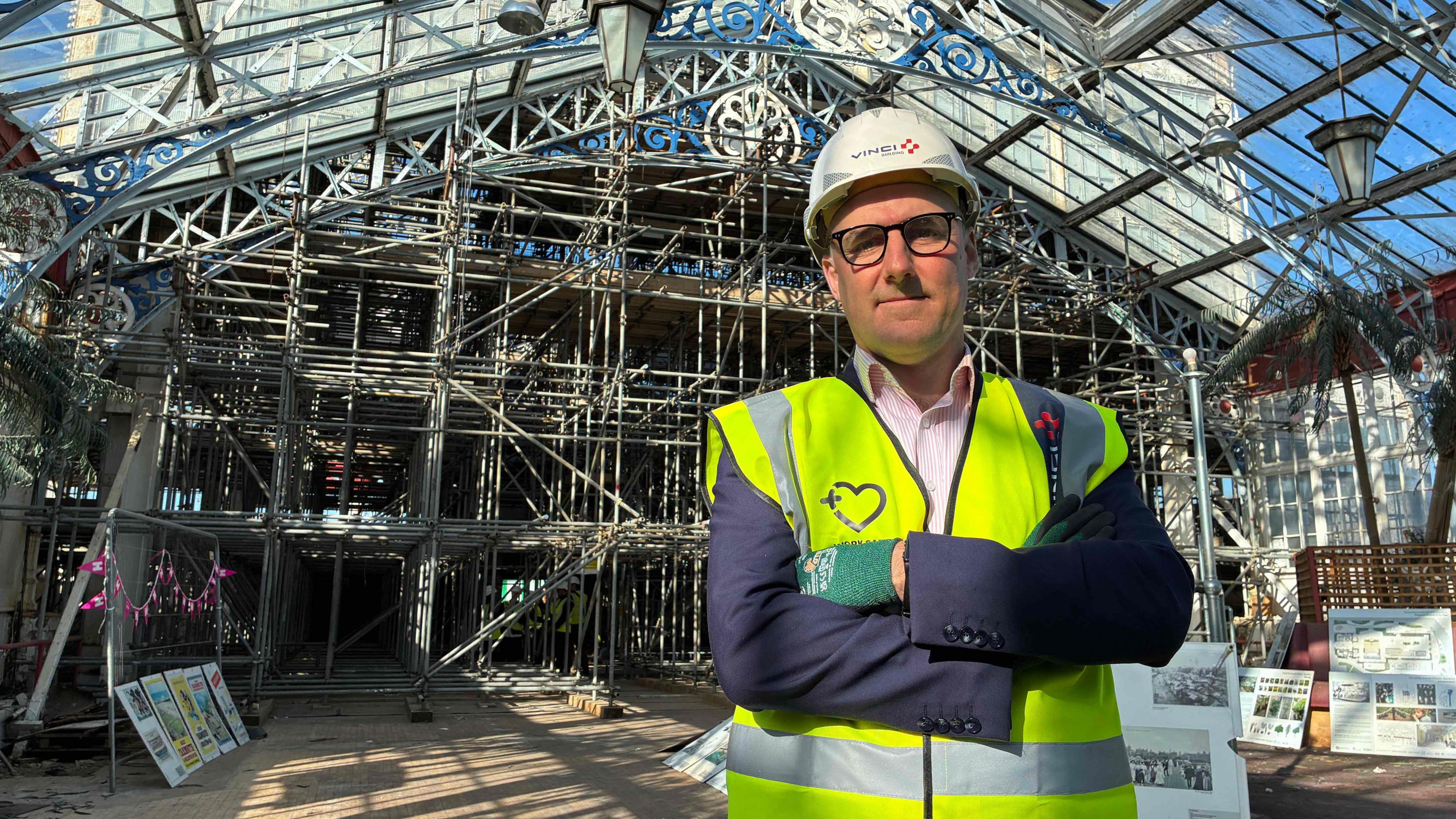
"This project's all about purpose," Mr Tumelty said
The council-owned Winter Gardens is the UK's last surviving Victorian glasshouse on a seafront promenade — having been built in Devon 1878-81 and moved to the Norfolk resort in 1904.
Mr Tumelty, regional director at Vinci Buildings, who has previously worked on the construction of the Olympic Stadium in east London, said they had to be "respectful of our neighbours".
With Sea Life on one side and the pier on the other, he said his team were having to use techniques that were "very low vibration".
The Humboldts, external are a species from South America, and it was thought there were as few as 10,000 left in the wild.
The company will start with the cleaning of existing ironwork, and Mr Tumelty said working on unique buildings like this one were projects his team wanted to be involved in.
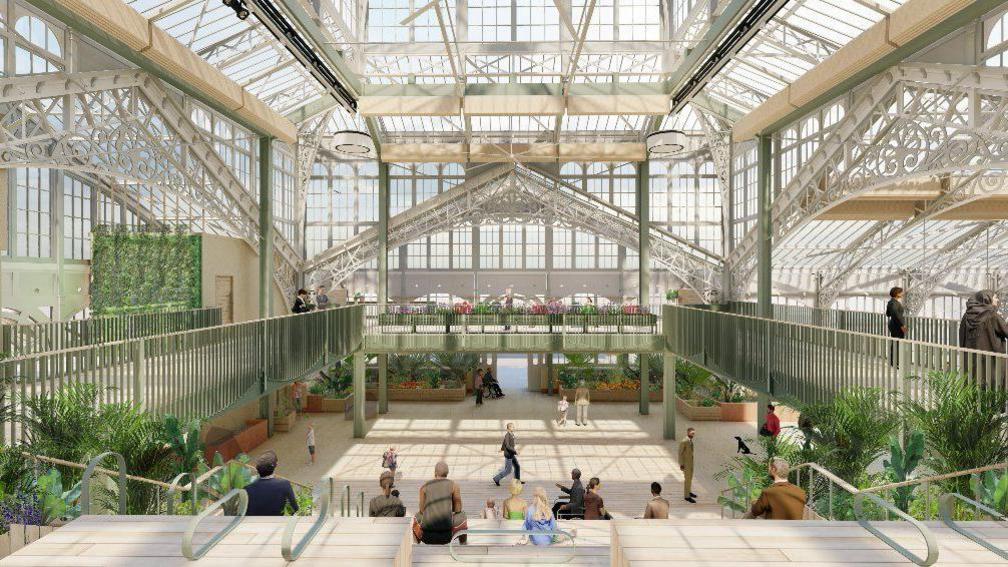
An artist's impression of how the Winter Gardens will look after restoration
The building is Grade II* listed, external and described by the architectural firm behind the current work as "nationally significant".
Faye Davies, managing director at Burrell Foley Fischer, believed people would come to the town to see "this magnificent building refurbished".
She said the key to the building's success would be to make it a space that people wanted to use.
"A building that's being used by the public is always looked after and loved a bit better," she said.
Designs for the building include plans for high-quality glazing, heating and cooling systems, significant planting, rainwater collection and use, irrigation, and low energy and decarbonisation.
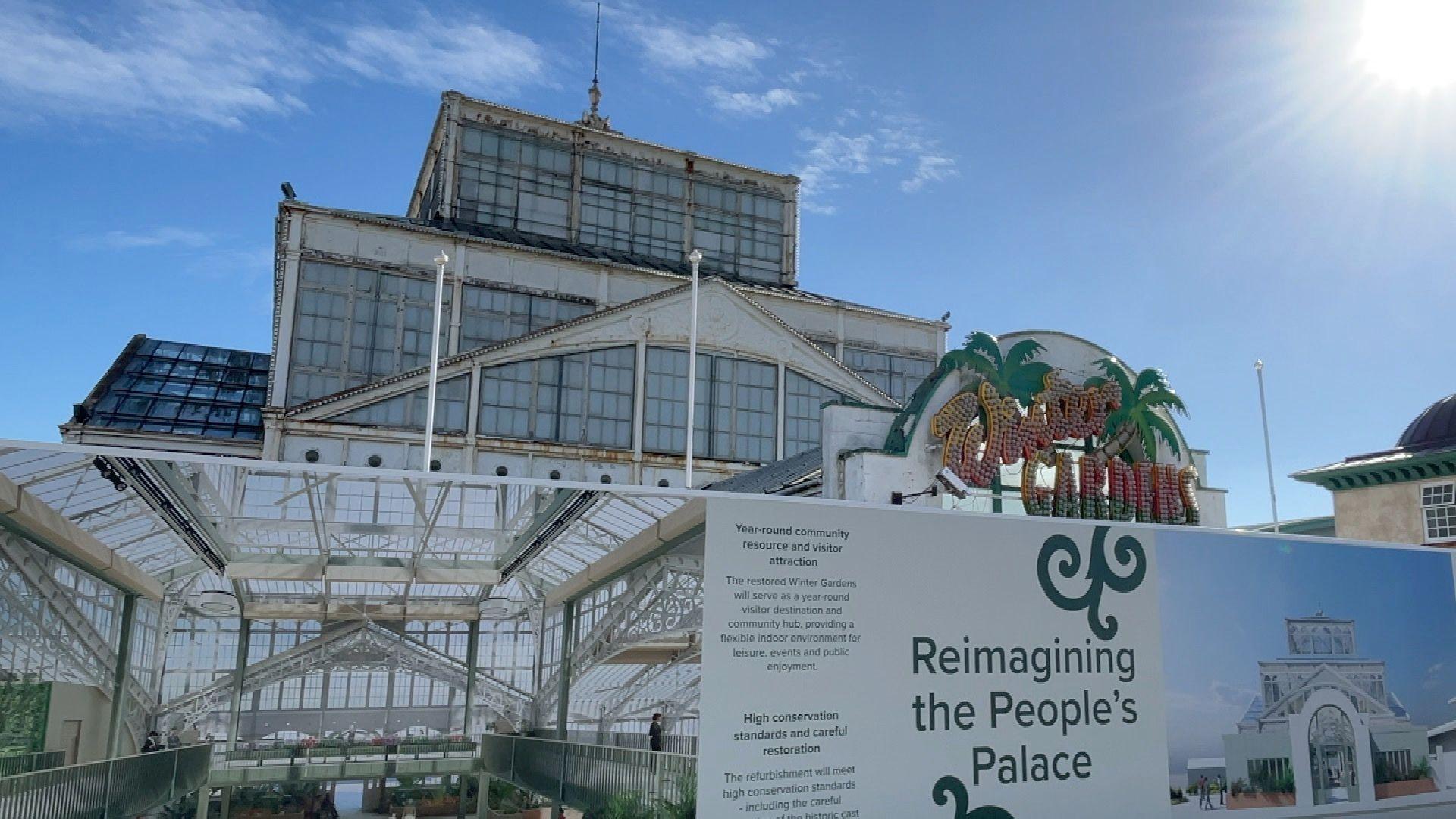
Designs for the building includes high-quality glazing, heating and cooling systems, and rainwater harvesting
Carl Smith, leader of Great Yarmouth Borough Council, said the vision was to make the town an "all-year-round tourist destination".
"We're going to get people visit this from all over the country and maybe across Europe as well," he said.
Funding for the project is made up of £12.3m from the National Lottery Heritage Fund, £6m from the Government's UK Towns Fund, and a £500,000 grant from Historic England.
Are penguins causing problems for the Winter Gardens?
Builders are taking feathered friends into consideration when restoring the Winter Gardens
Get in touch
Do you have a story suggestion for Norfolk?
Follow Norfolk news on BBC Sounds, Facebook, external, Instagram, external and X, external.
- Published9 May

- Published18 January
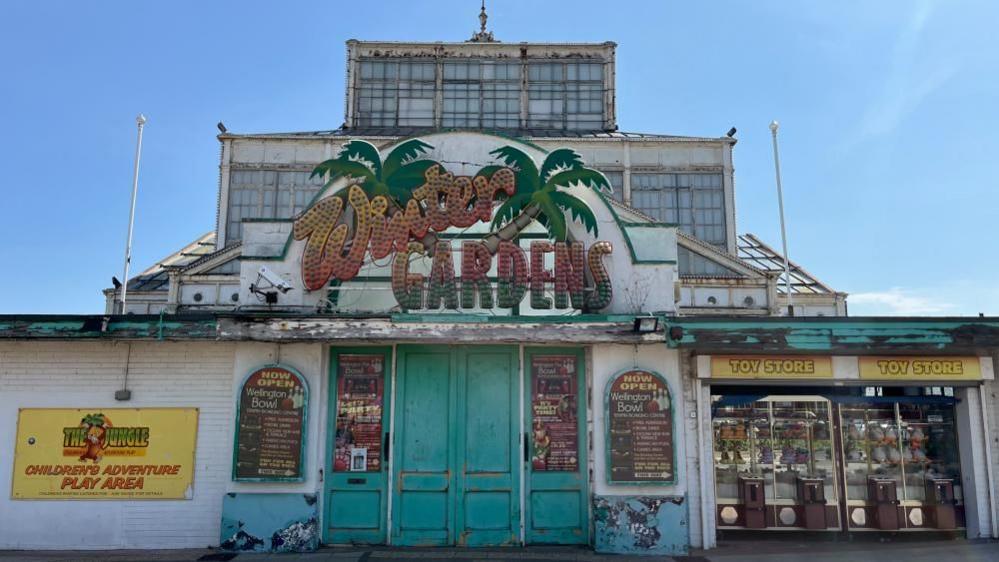
- Published9 May
